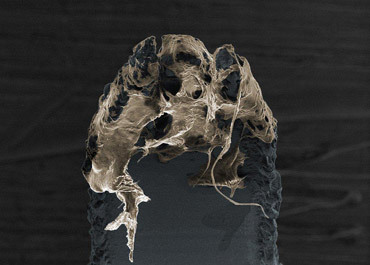UQ and LEO Pharma collaborate on skin cancer treatment

The University of Queensland (UQ) and global pharmaceutical company LEO Pharma have entered a strategic research collaboration to deliver new treatment options skin cancer patients.
Dr Thorsten Thormann, vice president for new product discovery, LEO Pharma, said the deal “gives us a unique chance to develop new solutions and treatments for patients suffering from skin cancer”.
The three-year collaboration, facilitated by UQ commercialisation company UniQuest, includes four types of activities: exploratory clinical trials; basic research; contract research; and material transfer agreement (MTA) activities. It will be the first study of its kind to examine the genetic changes that lead to skin cancer as it occurs.
Squamous cell carcinoma is the second-most common skin cancer in the world; two in three Australians are diagnosed with the disease by the time they are 70. Professors Nick Saunders, Ian Frazer and Matt Brown from the UQ Diamantina Institute and Professor Peter Soyer and Dr Tarl Prow from UQ’s School of Medicine will work at the Translational Research Institute (TRI) to determine which genes are responsible for the cancer.
“This industry partnership is making it possible for world-renowned researchers at UQ to work on a project which combines the university’s strengths in dermatology, medical device development and genetic sequencing,” said UQ Deputy Vice-Chancellor (Research) Professor Max Lu.
He said the TRI work “will reveal new data about the basic causes of skin cancer and how mutations in skin cells lead to tumours” - data which is likely to inform new skin cancer treatments. Professor Soyer and Dr Prow have developed a micro-sized skin biopsy device to be used in the research.
Professor Soyer said the device would take small samples from individual lesions (skin cancers) over a period of time in a minimally invasive, painless manner. These would be genetically sequenced and analysed for mutations and, for the first time, said Professor Soyer, “researchers can follow a suspicious lesion as it turns malignant”.
He said the combination of the microbiopsy device, Professor Brown’s sequencing and bioinformatics expertise and LEO Pharma’s background in skin cancer therapy will offer real solutions to skin cancer patients.
Almost 300 genome regions increase risk of bipolar disorder
To help elucidate bipolar disorder's underlying biology, scientists conducted a genome-wide...
Gut microbes appear to regulate anxiety
In a germ-free environment, mice which were not exposed to live microbes showed significantly...
Specially designed peptides can treat complex diseases
Two separate research teams have found ways to create short chains of amino acids, termed...



